Nigerian Music
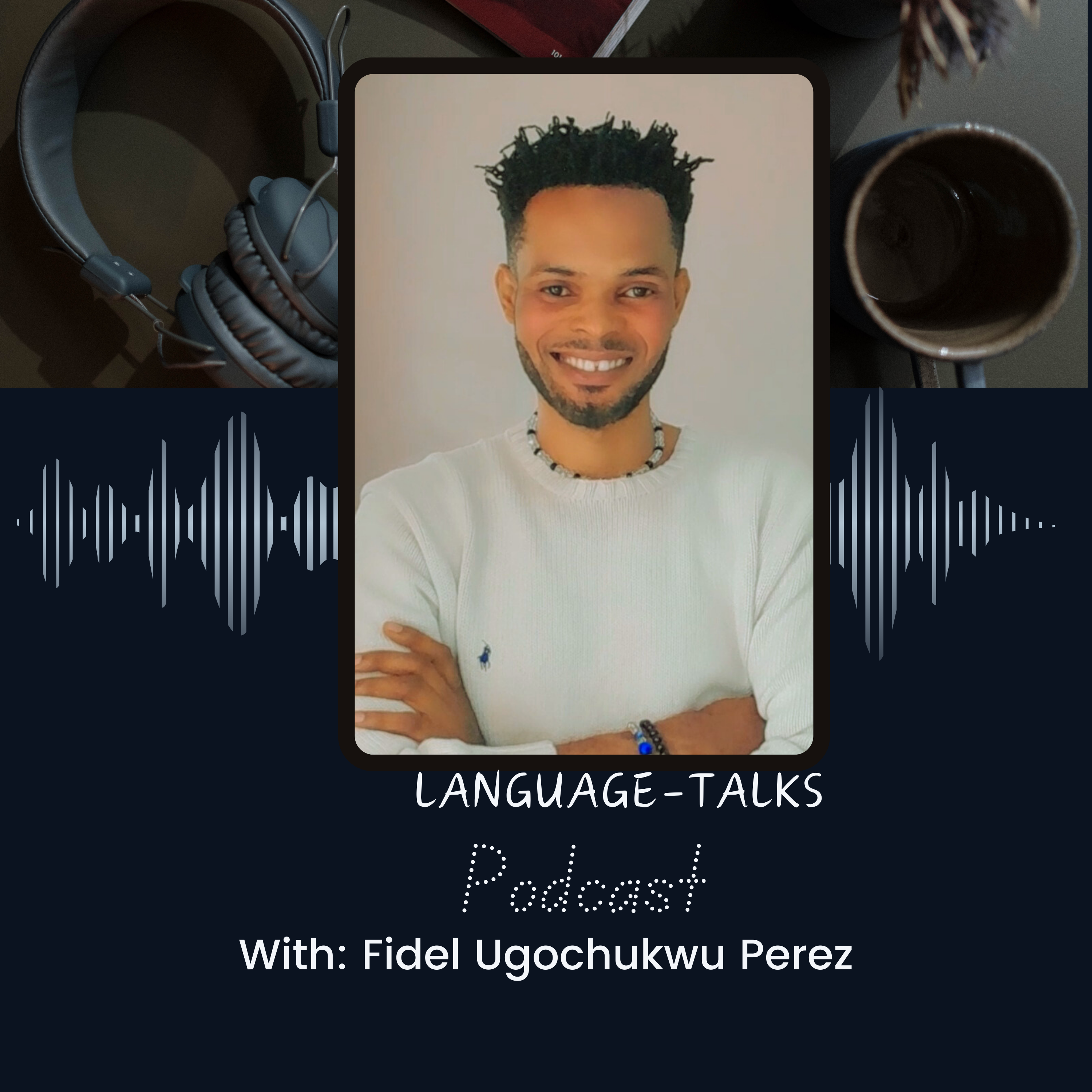
Fidel Ugochukwu Perez
Nigerian Music Episode 1: Language Talks Podcast with Fidel Ugochukwu Perez
[Intro Music Playing]
Hello everyone, welcome to Language Talks! I’m Fidel Ugochukwu Perez, your host. If you’re joining us for the first time, I’m thrilled to have you here. This podcast is specially designed to help English language learners like you improve your listening and spoken English skills.
We cover a range of interesting topics using simple English to make learning both fun and easy. “You can locate the transcription of this episode at gistandmore.com/category/podcast or check the show notes if you are on Spotify or whichever app you’re listening from. So, let’s jump into today’s episode!
Today, we’re diving into the captivating world of Nigerian music. Nigeria, a vibrant country in West Africa, boasts a musical heritage that has captured hearts around the globe. From its traditional rhythms to contemporary genres, Nigerian music offers a fascinating journey through history and culture.
Nigerian music is deeply rooted in the diverse cultures and traditions of the country. Traditional Nigerian songs often feature a rich blend of instruments such as drums, flutes, and stringed instruments. These songs tell captivating stories, reflecting the history, love, and daily lives of the Nigerian people. Over the years, these traditional sounds have laid the foundation for the diverse range of music genres that Nigeria is known for today.
The evolution of Nigerian music is a testament to its adaptability and creativity. Over time, Nigerian artists have skillfully blended traditional sounds with global influences, creating unique and captivating genres.
With the global popularity of genres like Afrobeat, Highlife, and Juju, Nigerian musicians have not only gained recognition at home but have also reached audiences worldwide. Their innovative approach to music has made Nigerian music a celebrated part of the global music landscape.
Beyond its captivating rhythms and melodies, Nigerian music holds profound cultural significance. Music serves as a powerful medium for storytelling, preserving history, and expressing emotions. In Nigeria, music is deeply intertwined with daily life, celebrations, rituals, and social gatherings. It plays a pivotal role in uniting communities, fostering cultural pride, and promoting unity among diverse ethnic groups.
In recent decades, Nigerian music has experienced a surge in global popularity, often referred to as the “Nigerian music revolution.” Artists like Wizkid, Davido, Burna Boy, and Tiwa Savage have become household names on the international music scene, collaborating with renowned artists from around the world and topping global charts. Their innovative blend of traditional Nigerian sounds with contemporary influences has resonated with audiences across continents, contributing to the global recognition and appreciation of African country. (Note: That was a mistake. It should have been MUSIC)
Notable Artists and Trends
Wizkid: Often hailed as one of Africa’s biggest music exports, Wizkid’s unique blend of Afrobeat, reggae, and dancehall has earned him international acclaim. His collaborations with global artists like Drake, Beyoncé, and Justin Bieber have propelled Nigerian music to new heights on the global stage.
Davido: With his infectious energy and dynamic music style, Davido has become a dominant force in the Nigerian music industry. His hit songs, including “Fall” and “If,” have garnered millions of views and streams worldwide, showcasing the universal appeal of Nigerian music.
Burna Boy: Known for his distinctive fusion of Afrobeat, dancehall, reggae, and hip-hop, Burna Boy has earned critical acclaim and numerous awards for his groundbreaking music. His album “African Giant” received widespread acclaim and earned him a Grammy Award, further solidifying his status as a global music icon.
Tekno: Born Augustine Miles Kelechi, Tekno is a talented singer, songwriter, and producer known for his unique blend of Afrobeats, R&B, and pop music. He has gained international recognition with hits like “Pana,” “Duro,” and “Jogodo.”
Flavour: Chinedu Okoli, popularly known as Flavour, is a highlife musician and multi-instrumentalist. He is renowned for infusing traditional Igbo music with contemporary Afrobeats to create his distinctive sound. Some of his popular songs include “Nwa Baby (Ashawo Remix)” and “Ada Ada.”
Psquare: Comprising the twin brothers Peter and Paul Okoye, Psquare was one of Nigeria’s most successful musical duos. They gained widespread fame with hit songs like “Personally,” “Alingo,” and “Chop My Money” before disbanding to pursue solo careers.
2face (2Baba): Innocent Ujah Idibia, known as 2Baba, is a legendary Nigerian singer, songwriter, and philanthropist. He is considered a pioneer of Afrobeats and has numerous hits to his name, including “African Queen,” “Implication,” and “Oyi.”
Ice Prince: Panshak Zamani, better known as Ice Prince, is a rapper and songwriter known for his lyrical prowess and versatility. He gained prominence with tracks like “Oleku,” “Aboki,” and “Feelings.”
GOSPEL MUSIC
Mercy Chinwo: Mercy Chinwo is a gospel singer and songwriter known for her powerful vocals and inspirational songs. She has released several hit gospel tracks, including “Excess Love,” “Chinedum,” and “Obinasom.”
Frank Edwards: Frank Edwards is a contemporary gospel singer, songwriter, and producer. He is renowned for his uplifting and soul-stirring gospel songs like “Mma Mma,” “You Too Dey Bless Me,” and “Under the Canopy.”
Ada Ehi (Ada): Ada Ehi is a gospel artist known for her energetic performances and inspirational music. She has delivered hits like “Only You Jesus,” “Cheta,” and “I Testify.”
Sinach: Osinachi Joseph, popularly known as Sinach, is a renowned gospel singer and songwriter. She is best known for her worship songs, including the global hit “Way Maker,” “I Know Who I Am,” and “The Name of Jesus.”
These artists have significantly contributed to the Nigerian music industry’s growth and global recognition, showcasing the country’s rich musical heritage and diversity.
Popular Genres in Nigerian Music include Afrobeat
Afrobeat: Afrobeat emerged in the 1960s and 70s, blending traditional Yoruba music with elements of funk, jazz, and highlife. Pioneered by legendary artists like Fela Kuti, Afrobeat has become synonymous with Nigerian music. Its infectious rhythms and powerful messages have inspired musicians and fans around the world.
While Afrobeat remains a foundational genre, the rise of “Afrobeats” as a contemporary music genre has taken the world by storm.
Over the years, Nigerian artists have made significant strides on the global stage, earning Grammy awards and gaining international acclaim for their exceptional talent and creativity. These artists have not only showcased the diversity and richness of Nigerian music but have also bridged cultural gaps and introduced Afrobeat and Afrobeats to a global audience.
One of the most notable Nigerian artists to receive Grammy recognition is Burna Boy. In 2021, Burna Boy won the Grammy Award for Best Global Music Album for his critically acclaimed album “Twice As Tall.” This achievement solidified his status as a global music icon and highlighted the global appeal of Afrobeats music.
Another prominent Nigerian artist who has received international recognition is Wizkid. Known for his infectious melodies and captivating performances, Wizkid won the Grammy Award for Best Music Video in 2021 for his collaboration with Beyoncé on the song “Brown Skin Girl.” This Grammy win further elevated Wizkid’s profile on the global stage and showcased the global impact of Nigerian music.
In addition to Grammy recognition, Nigerian artists such as Davido, Tiwa Savage, and Yemi Alade have also gained international acclaim through their chart-topping hits, sold-out concerts, and collaborations with international artists. Their contributions to the music industry have helped to shine a spotlight on Nigerian music and culture, inspiring a new generation of artists and fans around the world.
The success of these Nigerian artists on the global stage is a testament to the talent, creativity, and resilience of the Nigerian music industry. With their Grammy wins and international recognition, they have paved the way for future Nigerian artists to continue pushing boundaries, breaking barriers, and making waves on the global music scene.
Music plays a central role in Nigerian culture and is an integral part of various celebrations and festivities. Whether it’s a birthday, traditional wedding, white wedding, or any other special occasion, music serves as a unifying force that brings people together, creates joyful atmospheres, and enhances the overall experience of celebration.
Music plays a central role in Nigerian religious gatherings, enhancing spiritual experiences, fostering community bonds, and celebrating faith through song and dance.
Here’s an overview of Nigerian music in Nigerian churches:
Nigerian churches often feature traditional hymns and gospel songs in their worship services, blending Western musical influences with local Nigerian melodies and rhythms. The use of traditional hymns and gospel songs connects worshippers to their faith heritage and creates a sense of unity and reverence in the church.
In addition to traditional hymns and gospel songs, Nigerian churches also incorporate contemporary Christian music into their worship services.
Music is not limited to birthdays and weddings in Nigeria; it is also an essential part of other festive occasions such as Christmas, New Year’s Eve, Easter, and cultural festivals.
Nigerian artists have made significant contributions to the global music scene, collaborating with international artists, and influencing musical trends and styles. Their collaborations with artists like Beyoncé, Drake, and Ed Sheeran have helped to elevate Nigerian music to new heights and introduce Afrobeats to a broader audience.
Nigerian music and artists have had a profound impact on pop culture, influencing fashion, dance, and entertainment trends globally. The popularity of Nigerian music videos, dance challenges, and fashion styles on social media platforms like TikTok and Instagram reflects the growing influence and global reach of Nigerian music and artists.
Perception of Talent and Creativity: Overall, Nigerian music and artists are widely regarded for their immense talent, creativity, and ability to connect with audiences on a global scale. The world sees Nigerian music as a vibrant and dynamic part of the global music landscape, with artists who are pushing boundaries, breaking barriers, and making waves in the international music industry.
That wraps up today’s episode of Language Talks. I hope you found our exploration of Nigerian music informative and enjoyable. Stay tuned for more exciting topics in our upcoming episodes. Remember, consistent practice is key to mastering English, so keep listening, speaking, and learning!
[Outro Music Playing]
Thank you for joining me today on Language Talks. Until next time, continue your journey of learning and improving your English skills. Goodbye!


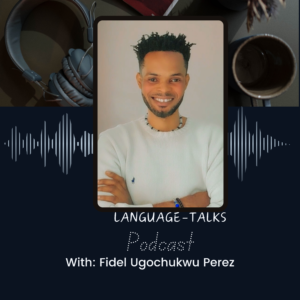

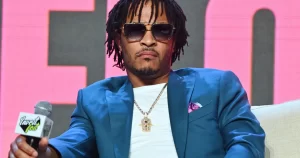



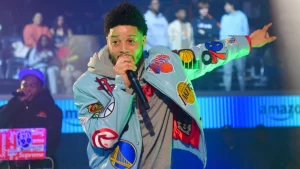


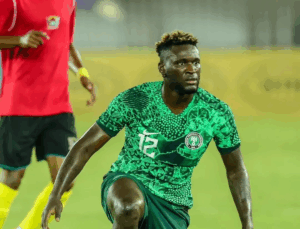


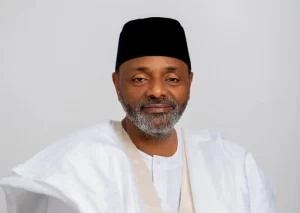
3 thoughts on “Nigerian Music”
Comments are closed.